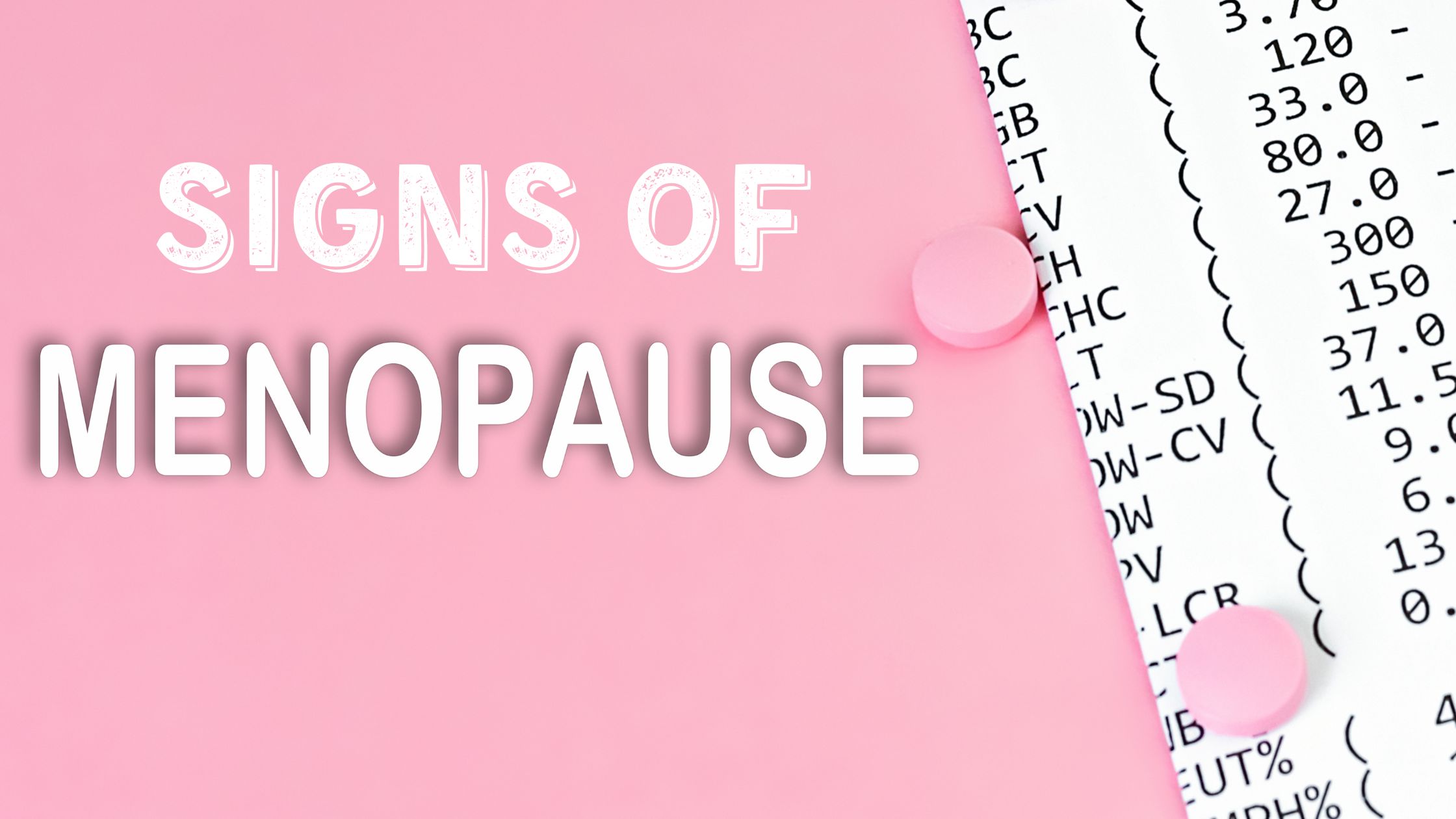| We list the most common menopause & perimenopause signs which can bring about a variety of physical and emotional changes. Common symptoms include: 1. Irregular periods 2. Hot flashes 3. Night sweats 4. Mood swings 5. Sleep disturbances 6. Fatigue 7. Changes in libido 8. Vaginal dryness 9. Weight gain 10. Hair changes 11. Skin changes 12. Joint pain 13. Headaches 14. Memory lapses 15. Difficulty concentrating 16. Breast tenderness 17. Changes in body odour 18. Changes in digestion 19. Increased urinary frequency 20. Osteoporosis risk 21. Heart palpitations 22. Anxiety 23. Depression 24. Irritability 25. Tingling extremities 26. Gastrointestinal issues 27. Allergies 28. Electric shock sensations 29. Dizziness 30. Brittle nails 31. Changes in taste and smell 32. Dental problems 33. Gum problems It’s important to state that not every woman will experience all of these symptoms, and their intensity can vary. The typical initial perimenopause symptoms often include irregular periods, changes in menstrual flow, and occasional hot flashes/hot flushes. Some women may also experience mood swings, sleep disturbances, and fatigue during the early stages of menopause. Keep in mind that the onset and intensity of symptoms can vary among individuals. If you’re experiencing concerns related to menopause, consulting a healthcare professional is advisable. COMMON MENOPAUSE SYMPTOMS Common signs of menopause include hot flashes, night sweats, mood swings, weight gain, sleep disturbances, changes in libido, vaginal dryness, and irregular periods leading to their eventual cessation. LESS COMMON MENOPAUSE SYMPTOMS Less common menopause symptoms may include joint pain, headaches, memory lapses, difficulty concentrating, changes in skin elasticity, and changes in hair texture. It’s important to note that symptoms can vary widely among individuals, and consulting a healthcare provider is recommended for personalized guidance. MENOPAUSE WEIGHT GAIN Weight gain during menopause is common for many women. Hormonal changes, particularly a decrease in estrogen levels, can contribute to changes in body composition, including increased fat storage, especially around the abdomen. At perimenopause weight can typically increase around the hips. Whereas at menopause this usually shifts to around the abdomen and women move from pear shape to being more apple shape. Various other factors influence weight changes during menopause, such as genetics, lifestyle, diet, and physical activity. Most women experience weight gain as they age, due to a combination of menopause and reducing muscle mass and slower metabolism with the aging process. But this doesn’t have to be the norm for you if you don’t want it be. You can do something about it. Maintaining a healthy lifestyle through regular exercise, building muscle and eating a balanced diet can help manage weight and promote overall well-being during menopause. Losing weight during menopause can be hard, as women are typically faced with dealing with more than just one menopause symptom, so it’s essential to focus on overall health rather than solely on weight, as healthy habits contribute to an overall better quality of life at the same time as managing weight. If weight concerns arise, consulting with a healthcare professional or a registered dietitian can provide personalized guidance. MENOPAUSE TREATMENTS Menopause treatments vary based on individual symptoms and preferences. Common approaches include: 1. **Hormone Replacement Therapy (HRT):** This involves estrogen and, in some cases, progesterone to relieve symptoms like hot flashes and vaginal dryness. However, it’s not suitable for everyone and carries potential risks. 2. **Non-Hormonal Medications:** Antidepressants and anti-seizure medications may help manage anxiety and mood swings. 3. **Vaginal Estrogen:** For vaginal dryness and discomfort, estrogen creams or tablets can be applied directly. 4. **Lifestyle Changes:** Regular exercise, a balanced diet, and stress reduction techniques can contribute to overall well-being during menopause. 5. **Dietary Supplements:** Many women opt for natural remedies and find relief from symptoms through a variety of popular supplements like red clover, soy, or vitamin D, though scientific evidence varies and much like medications, individual experiences can vary. We recommend the Pretty Pea menopause supplements. You can see the full range of weight loss, lifestyle and menopause supplements at www.prettypea.blog 6. **Counselling or Therapy:** Mental health support can be beneficial for managing mood swings and emotional changes. It’s crucial to consult with a healthcare professional to discuss individual symptoms, medical history, and determine the most suitable treatment plan. |


